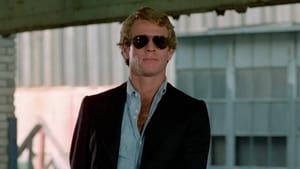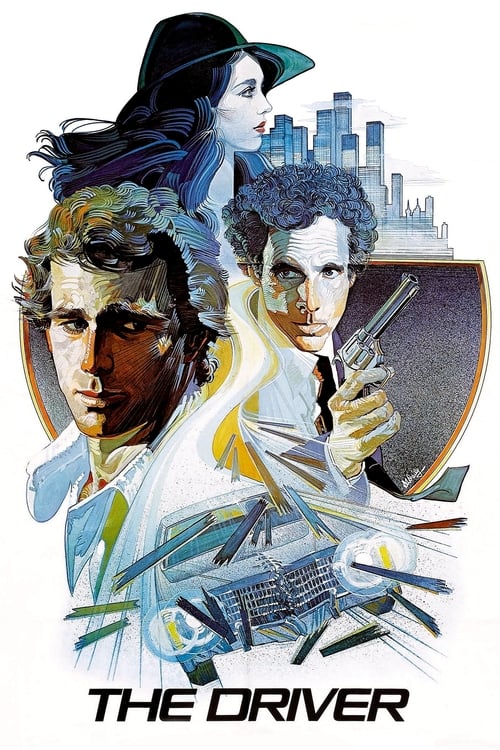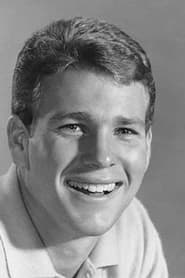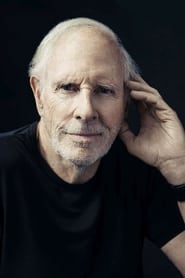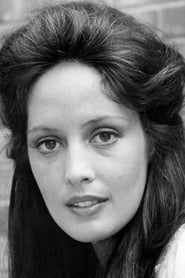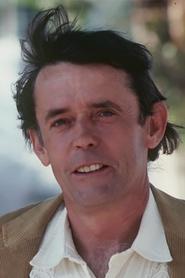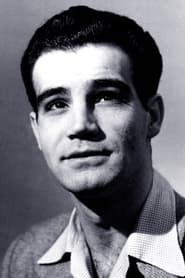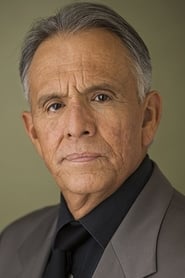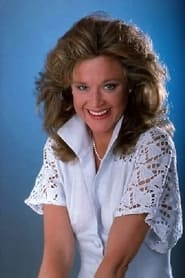Cast
View AllRyan O'Neal
as The Driver
Bruce Dern
as The Detective
Isabelle Adjani
as The Player
Ronee Blakley
as The Connection
Matt Clark
as Red Plainclothesman
Felice Orlandi
as Gold Plainclothesman
Joseph Walsh
as Glasses
Rudy Ramos
as Teeth
Denny Macko
as Exchange Man
Frank Bruno
as The Kid
Will Walker
as Fingers
Sandy Brown Wyeth
as Split
Tara King
as Frizzy
Richard Carey
as Floorman
Fidel Corona
as Card Player
Crew
Director
- Walter Hill
Producer
- Lawrence Gordon
Reviews
John Chard
Sparse Urban Magnificence.
The Driver is written and directed by Walter Hill. It stars Ryan O’Neil, Bruce Dern, Isabelle Adjani and Ronee Blakley. Music is by Michael Small and cinematography by Phillip H. Lathrop.
A determined cop pursues an enigmatic getaway driver through the crooked streets of Los Angeles…
It’s most amusing to now be able to look back at some of the reviews for The Driver back on its initial release. Without wishing to sound like a smarty pants myself of course, but some of them simply didn’t get it, they didn’t understand that Ryan O’Neil’s character was meant to be one note, unreadable and dissociated from society. There is a reason that the principal characters don’t have names, they are simply known as The Driver, The Detective and The Player, the core emotional worth of these people is a key aspect to the film’s strength. Where The Driver is emotionless and not for shaking, The Detective is a coiled spring waiting to explode, a law enforcer willing to do anything to capture his Moby Dick.
Much of the plaudits that come the film’s way tend to focus on the car action, which is perfectly understandable. The chase sequences are kinetic, the trial runs exhilarating, this is quite simply a fast car lovers dream as the stunt team lay fire to the streets of L.A. It’s also an influential film into the bargain, however, this is not purely an exercise in action over substance. For sure the story line is simple, but the themes simmering away are anything but simple. The thin line between law and lawlessness is observed, between calm and chaos there is but a hair’s breadth, the grey areas vivid in their textures. This is a cat and mouse thriller with a difference, even daring to risk the viewer’s ire with a crafty and low-key finale.
The script is in turns laconic and hard-boiled, the screenplay surprisingly convoluted in relation to how it all pans out. While the neo-noir vibe is further enhanced by Lathrop’s photography as the streetscapes pulse with urban realism. The acting doesn’t have to be top notch, the characters do not call for thesping of the method or board walking kind, they just need to get a handle on their respective traits that define them, and they do, perfectly so. A supremely cool movie, exciting and brawny as well, The Driver is a neo-noir gem. 9/10
Jan 11, 2014
Steve
www.noiroftheweek.com
This week we take a look at the intense neo-noir, The Driver. Directed by Walter Hill, this cold neo is a perfect example of how film noir evolved into experimental crime films in the 1970s.
No doubt inspired by Le Samourai which itself was inspired by This Gun For Hire, The Driver is a cold, lean piece of pure cinema. A night time world of criminals and angry cops.
Film noir isn't known for car movies, but there are some great moments of criminals "on the lam" living and dying in cars. Gun Crazy and the recent Criterion release of They Live By Night have some hypnotic crimes taking place with the point of view from inside the car looking out. The point of view draws the viewer into the driver's perspective and it's always mesmerizing. You almost always get a jolt of adrenaline when you feel you're in a real car on a real street corner. Walter Hill's The Driver takes those moments and makes an entire movie out of it.
Starring a very disco cast, the film has barely any dialog. Bruce Dern gets the most lines as the man chasing the "driver." Mostly he frustratingly barks at middle-aged-hard-life-cops played by day-player actors that peppered every crime films of the time. Beautiful Isabelle Adjani is the female lead. And Ryan O'Neal is the handsome driver. Sporting long-ish, wavy hair and an open collar, he looks more like a playboy trying to pick up Diane Keaton at a bar than a hardened criminal.
Originally Steve McQueen and Robert Mitchum were at least close to playing the Ryan and Dern roles. The film would most definitely be more beloved -- even possibly a classified as a classic -- than forgotten if they had those guys in it. But would it be a better movie? I'm not so sure. Ryan has no actual backstory but his look just makes him more interesting. What is his story anyway? Hell, the guy doesn't even have a name. That's exactly what I thought watching the killer in Le Samourai. Why and how did they become what they are? O'Neal also has a great entrance. Slowly rising. Coming into frame one one of those man lifts that parking garage guys use to go up flights quickly. And Bruce Dern was never better than he was in the 70s. He looks like he could be Ryan's brother.
The film succeeds when you realize and accept there's not much plot or humor.
Just enjoy the ride.
It resists the Burt Reynolds joke-y 70s car movie hijinx and takes thing very seriously (and I love those fun Burt Reynolds comedies). Never do you think O'Neal is enjoying his driving or frustrating police. With a deadpan face and unmoving hair, it's all about the visuals in 70s neon-lit downtown LA and the pleasing sound of metal bending, tires squealing, and gears changing. It's amazing that McQueen turned the role down saying he didn't want to do "another car movie." It would have been one of his best. Instead, it's a pretty much forgotten film that was panned as pretentious in 1978. A box office bomb that would be a critical darling if it was put out today.
With the release of Baby Driver, director Edgar Wright has made it clear that his film was made because of the inspiration of watching The Driver over and over again late night on the BBC. The Ryan Gosling film Drive, a completely different movie than Baby Driver, was also a direct tribute to the 1978 neo noir.
You could pair off The Driver with a number of different films for a double feature. As I mentioned before, They Live By Night, Le Samourai, and a number of other 70s thrillers like Sorcerer, Bullitt, or even the equally panned romantic Aloha, Bobby and Rose would all make great double features with the beautiful, petal-to-the-metal neo-noir The Driver.
Some would argue that a film like this shouldn't be considered noir. Well, they'd be wrong. It has all the elements of a film noir without trying to pretend to be from the 1940s. And it's a hell of a ride.
Jun 30, 2017
nikkiwild
I love Hill's stuff, I think the car chase sequence is great and how Hill captures a city's landscape is amazing ( 48 hrs (my favorite) and The Warriors has that trademark as well.)
Jan 7, 2019
CinemaSerf
This is probably more famous for having characters without names. Ryan O'Neal being the eponymous character whose getaway antics bring him to the attention of the pretty seedy detective Bruce Dern. What ensues is rather minimalist adventure film - I couldn't quite call it a thriller - depicting people without much of a moral compass living in surroundings that merely appear to legitimise their behaviour; regardless of upon which side of the law they sit. Great car chases, though - the pace certainly doesn't hang about - and both O'Neal and Dern are very much on form with the sheer force of the personality doing much of their acting for them. Isabelle Adjani features a bit too sparingly for me, her character had more to offer I thought, but all told Walter Hill has created a decent, though hardly original, and stylish movie that is high on the octane but maybe not so much on the writing and/or plot!
Jun 4, 2023
Thematic Analysis
This high-octane Crime/Thriller/Action film balances spectacular sequences with character-driven moments. Unlike many films in the genre, The Driver distinguishes itself through its exceptional pacing and meaningful stakes for its protagonists.
Director Walter Hill brings their distinctive visual style to this film, continuing their exploration of themes seen in their previous works while adding new elements. Their approach to pacing and visual storytelling creates a viewing experience that rewards close attention.
Released in 1978, the film exists within a cultural context that now offers viewers historical perspective on the social issues of that era. Its critical acclaim reflects its artistic achievements and its place in cinema history.
Did You Know?
- The production of The Driver took approximately 15 months from pre-production to final cut.
- With a budget of $4.0 million, the film proved to be a financial success, earning back its investment and more.
- The final cut of the film runs for 91 minutes, though the director's initial assembly was reportedly 143 minutes long.
- The film contains approximately 1844 individual shots.
- The musical score contains over 76 unique compositions.
- Some visual effects sequences took up to 4 months to complete.
Historical Context
- In 1978, when this film was released:
- The Watergate scandal changed public perception of political institutions.
- Economic recession and oil crises were affecting global economies.
- The film industry was dominated by major studios, with independent cinema still in its early development.
How This Film Stands Out
While The Driver shares thematic elements with other films in its genre, it distinguishes itself through its unique approach to storytelling, visual style, and character development.
Unlike The Hitcher, which takes a more conventional approach to its subject matter, The Driver subverts genre expectations by exploring its themes with greater nuance.
While films like Ricochet and Darkman explore similar territory, The Driver stands apart through its distinctive directorial vision and pacing.
This film's unique contribution to cinema lies in its thoughtful balance of entertainment value and thematic depth, making it a valuable addition to its genre.
Details
- Release Date: June 8, 1978
- Runtime: 1h 31m
- Budget: $4,000,000
- Revenue: $4,900,000
